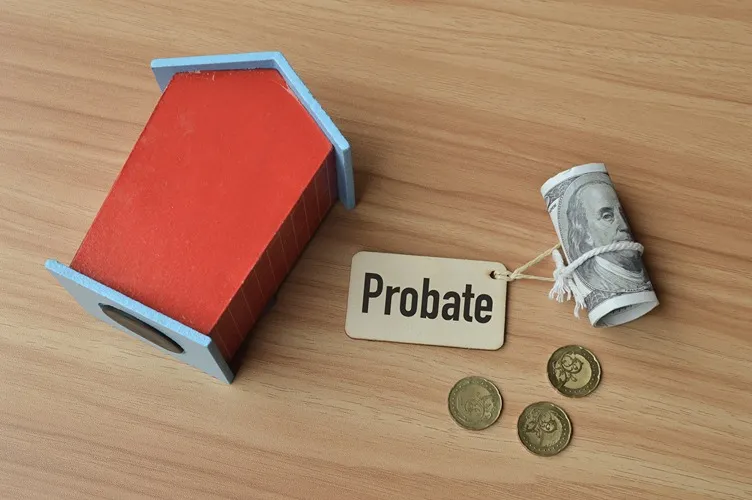Understanding the Probate Process in Texas
The probate process in Texas involves a series of legal steps that must be followed after a person passes away. This process ensures that the deceased's assets are distributed according to their will or, if there is no will, according to Texas intestacy laws. Understanding these steps can help families navigate the emotional and legal complexities that arise during this time.
Key stages in the probate process include filing the will with the court, appointing an executor, inventorying the deceased's assets, paying debts and taxes, and ultimately distributing the remaining assets to the beneficiaries. Each step can have associated costs and timelines, making it essential for families to seek professional guidance to ensure compliance with Texas probate laws.
Common Misconceptions About Probate Costs
Many individuals hold misconceptions about the costs involved in the probate process, often underestimating the financial implications. For example, some believe that probate is a quick and inexpensive process, when in reality, it can take several months or even years, depending on the complexity of the estate and any disputes that may arise.
Additionally, while there are standard fees associated with probate, such as court costs and attorney fees, there may also be unexpected expenses related to asset management, appraisal, and taxes. Understanding these potential costs upfront can help families plan better and avoid financial strain during an already challenging time.
Alternatives to Probate in Texas
For those looking to avoid the probate process altogether, several alternatives exist in Texas. These options can simplify the transfer of assets and minimize costs, making them attractive for many families. Common alternatives include establishing a living trust, joint ownership of property, and using beneficiary designations on accounts and insurance policies.
Each alternative comes with its own set of rules and implications, so it's crucial for individuals to consult with a legal professional to determine the best approach for their specific situation. By exploring these alternatives, families can ensure a smoother transition of assets while potentially reducing the overall financial burden associated with probate.
How to Choose the Right Probate Attorney in Texas
Selecting the right probate attorney is a critical step in managing the probate process effectively. A qualified attorney can provide invaluable assistance, guiding families through the legal intricacies while ensuring compliance with Texas laws. When choosing an attorney, it’s important to consider their experience in probate law, client reviews, and their approach to communication.
Additionally, prospective clients should feel comfortable discussing fees upfront, as attorney costs can vary significantly. Many attorneys offer free consultations, which can provide an opportunity to assess their expertise and determine if they are the right fit for your needs. A knowledgeable attorney can make a significant difference in navigating the probate landscape smoothly and efficiently.
Understanding the Probate Process in Texas
The probate process in Texas involves a series of legal steps that must be followed after a person passes away. This process ensures that the deceased's assets are distributed according to their will or, if there is no will, according to Texas intestacy laws. Understanding these steps can help families navigate the emotional and legal complexities that arise during this time.
Key stages in the probate process include filing the will with the court, appointing an executor, inventorying the deceased's assets, paying debts and taxes, and ultimately distributing the remaining assets to the beneficiaries. Each step can have associated costs and timelines, making it essential for families to seek professional guidance to ensure compliance with Texas probate laws.
Common Misconceptions About Probate Costs
Many individuals hold misconceptions about the costs involved in the probate process, often underestimating the financial implications. For example, some believe that probate is a quick and inexpensive process, when in reality, it can take several months or even years, depending on the complexity of the estate and any disputes that may arise.
Additionally, while there are standard fees associated with probate, such as court costs and attorney fees, there may also be unexpected expenses related to asset management, appraisal, and taxes. Understanding these potential costs upfront can help families plan better and avoid financial strain during an already challenging time.
Alternatives to Probate in Texas
For those looking to avoid the probate process altogether, several alternatives exist in Texas. These options can simplify the transfer of assets and minimize costs, making them attractive for many families. Common alternatives include establishing a living trust, joint ownership of property, and using beneficiary designations on accounts and insurance policies.
Each alternative comes with its own set of rules and implications, so it's crucial for individuals to consult with a legal professional to determine the best approach for their specific situation. By exploring these alternatives, families can ensure a smoother transition of assets while potentially reducing the overall financial burden associated with probate.
How to Choose the Right Probate Attorney in Texas
Selecting the right probate attorney is a critical step in managing the probate process effectively. A qualified attorney can provide invaluable assistance, guiding families through the legal intricacies while ensuring compliance with Texas laws. When choosing an attorney, it’s important to consider their experience in probate law, client reviews, and their approach to communication.
Additionally, prospective clients should feel comfortable discussing fees upfront, as attorney costs can vary significantly. Many attorneys offer free consultations, which can provide an opportunity to assess their expertise and determine if they are the right fit for your needs. A knowledgeable attorney can make a significant difference in navigating the probate landscape smoothly and efficiently.






